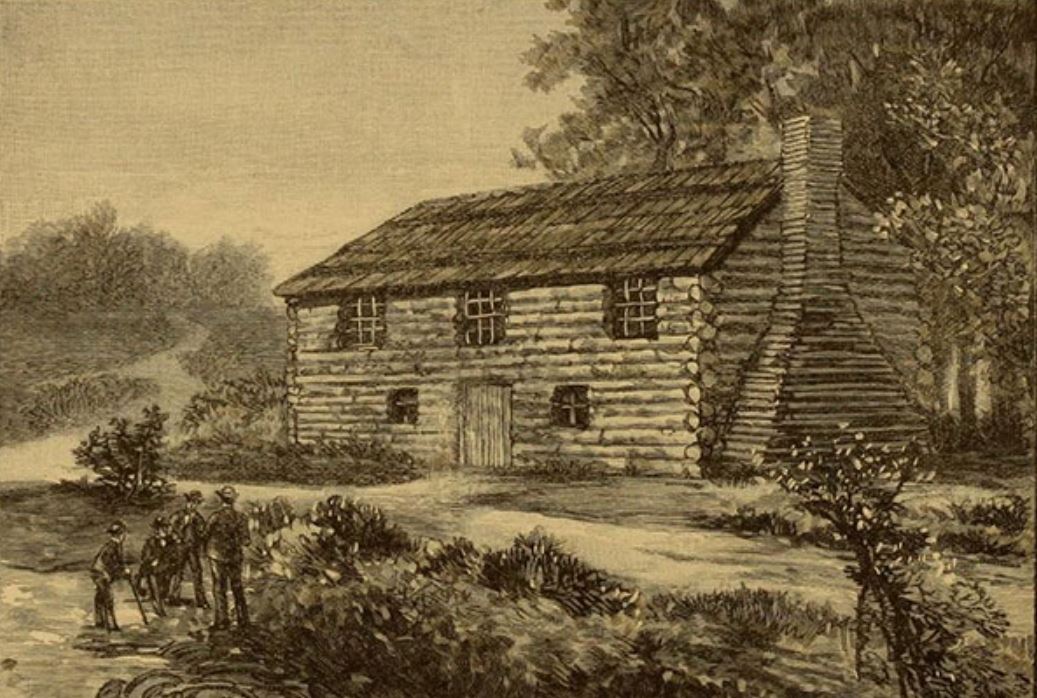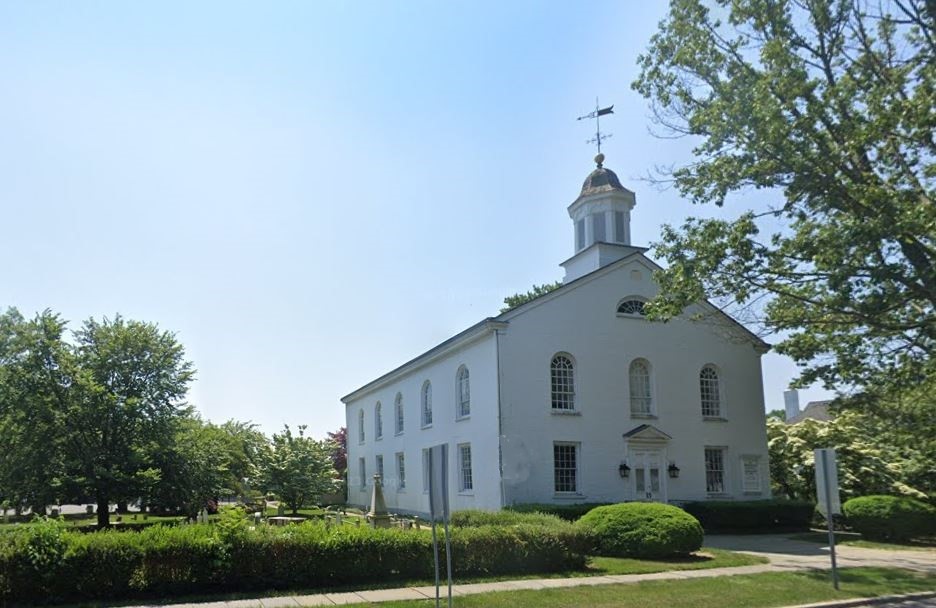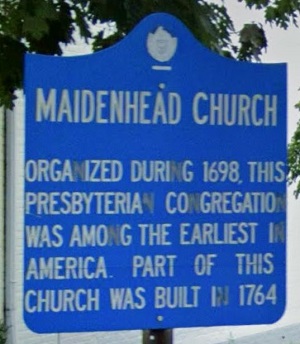1738 New Jersey and Pennsylvania Revivals (5 Revivals)


Background
The events recounted in this narrative were part of the First Great Awakening (1730s-1740s), with the central figure being the Welsh-born John Rowland. Little is known about Rowland’s life before these revival accounts, except that he was one of the students educated at the rustic yet renowned Log College, a precursor to Princeton University.
In 1738, Rowland obtained a license to preach as a Presbyterian minister and carried out his ministry in various New Jersey towns, including Hopewell (Pennington), Amwell, and Maidenhead (now Lawrenceville).

The Original Log College Building (a 19th-century representation)
The Hell-Fire Rowland
Referred to as “Hell-Fire Rowland,” John Rowland earned this title through his powerful sermons aimed at the impenitent, emphasizing the existence of a Savior while warning of impending judgment for those who reject Him.
Congregations of Hopewell, Maidenhead (Lawrenceville), Amwell
The congregations in Hopewell and Maidenhead submitted an application for Rowland to become their minister. This application was made September 7, 1738, the same day he received his preaching license. At that time, neither town had a meeting house (church), leading them to gather in barns. Due to the large numbers, they utilized the largest barns in the area, which led to ridicule from others. Eventually, meeting houses were constructed in both towns to accommodate the growing congregations.

Maidenhead Presbyterian Church
(Today it is Lawrenceville Presbyterian Church)
 Around the same time that Rowland accepted the pastorates at Hopewell and Maidenhead, the congregation in Amwell asked Rowland to dedicate some of his time to them. He agreed to their request and divided his time equally among the three congregations.
Around the same time that Rowland accepted the pastorates at Hopewell and Maidenhead, the congregation in Amwell asked Rowland to dedicate some of his time to them. He agreed to their request and divided his time equally among the three congregations.
Extraordinary Prayer
The congregations of Hopewell and Maidenhead had a group of people who were diligent and sincere. They committed themselves to prayer at every opportunity. Rowland, describing the intensity of their pleas, said:
Before I came among them, and they seemed so earnest in prayer, night and day, to have the gospel in power among them, as if they would take no denial.
Of the congregation in Amwell, few had a deep experience in their relationship with God, yet they were sincere, open, and encouraging to Rowland.
Fruit from Prayer and Ministry of the Word
After six months of ministry, where he directed his sermons towards conviction and conversion, hope began to rise as individuals professed their faith in Christ. The response started slowly, with only one or two individuals initially responding to the individual sermons. However, after months of continual effort, the number of converts multiplied.
Frequency of Preaching and Discipleship
Rowland’s preaching schedule involved two sermons on Sundays, as well as frequently during the week. Following up on the sermons he often made personal home visits with congregational members, for the purpose of ensuring the sermons preached were putting down deep roots.
Keeping Revival Fires Burning
The unity among congregational members was profound at this period, leading them to unite in small groups for 2-3 hours at a time, worshiping and praying together.
Universal Awakening
Among the converts were those of all categories:
Fathers, mothers, and the youth; some negroes, also, seemed very earnest after the word, and were convinced thereby of their, sin and misery, and that Christ they must have, or perish for ever.
Unity and Prayer
Rowland remarked on the godly lifestyles of his congregants and the unity they demonstrated. He indicated that this was a key factor contributing to the success of the revival. He didn’t have to invest time in settling disputes among the members or tending to trivial and distracting matters. The absence of relational conflict heightened the believers’ passion to see sinners converted.
Universal Outpouring of the Holy Spirit
In May 1739, during one of his sermons, he utilized the text from John 11:28-29, which reads:
And when she had so said, she went her way, and called Mary her sister secretly, saying, The Master is come, and calleth for thee. As soon as she heard that, she arose quickly, and came unto him.
The sermon was accompanied by a mighty outpouring of the Holy Spirit, emphasizing the truths spoken. The congregation felt the urgency that when God calls, they must promptly arise and act. This sermon, coupled with the outpouring of the Holy Spirit, resulted in a universal and solemn weeping throughout the congregation.
Outpourings of the Holy Spirit
Often, when Rowland preached, there was a tangible presence of God. These outpourings occurred frequently, and one notable event took place on October 6, 1739. Rowland recounted the occurrence, telling of how during an evening church service with only 15 people present, 11 of that number came under deep conviction and cried out so loud that Rowland had to conclude his sermon.
He then inquired why the 11 had become overwhelmed, and they shared of visions of hell, feeling ready to fall into it. Others expressed a profound sense of their sinfulness, fearing that the Lord might never show mercy on them.
Creeping Spiritual Slumber
For a few months leading up to July 1740, there had been a cooling off of spiritual passion and fervency. Rowland even mentioned “lukewarmness at this time prevailed very much among the people,” and “neither did they seem to have such a thirst for the word of God as formerly.”
However, on July 24, following a midweek church service in Maidenhead, warmth began to be evident among the people again. This occurrence transpired after the church service when about 40 assembled in one of the members’ homes.
As those in that home were singing from Psalm 50, an unusual awareness of God enveloped them. The Psalm was taught on for a period of time, and an awareness of God’s love became manifest among the people. Some had revelations of His majesty and glory, and their longings for him were stirred up.
A few days later, on July 27 and again on August 3, there were more outpourings, described in this manner:
Their convictions were attended with great horror and trembling, and loud weeping, which I supposed could not be stopped so easily as some do imagine; for I observed that many did continue crying in the most doleful manner along the road, in their way home; and it was not in the power of man to prevail with them to refrain; for the word of the Lord remained like fire upon their hearts.
Methods Used to Retain the Harvest
One powerful means used to retain the harvest was the diligence of some of the believers who took it upon themselves to engage in discipleship, visiting and speaking with others continually, ensuring that the faith they had in Christ grew stronger, until they experienced “sound conversion.”

Locations mentioned in this account
The Great Valley and Providence Revivals
After some time, Rowland left New Jersey for Pennsylvania, where he became the minister of a congregation in what is called “The Great Valley” (today the area of Chester County Pennsylvania, near to Norristown, and Providence). Much of his time, however, seems to have been spent itinerating, preaching from place to place, with great impact occurring in the churches that he visited.
Outpourings in Pennsylvania
Through his preaching in Pennsylvania, it was evidenced that people would be so overcome during the preaching of the word of God, that dozens would cry out simultaneously due to deep conviction of sin, while others, so overcome with emotional awareness of their sinfulness and need of the Savior, that they would “fall down fainting.”
Sources
► About Lawrence Township by Lawrence Historical Society
► Biographical Sketches of the Founder, and Principal Alumni of the Log College: by Alexander Archibald
► Log College by Wikipedia
► This Day in Presbyterian History by Presbyterian History
Return to List of Revival Stories
Chet & Phyllis Swearingen:
Office: (260) 920-8248
romans1015@outlook.com
Beautiful Feet
P.O. Box 915
Auburn, IN 46706

